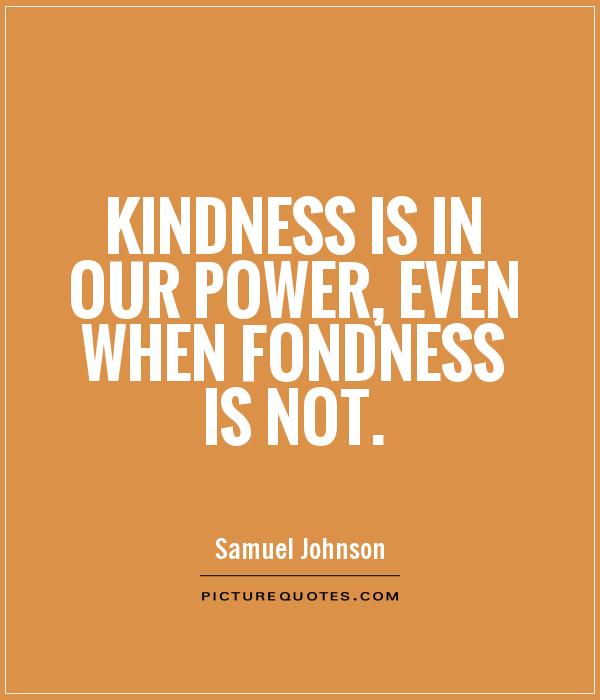Kindness is in our power, even when fondness is not

Kindness is in our power, even when fondness is not
Samuel Johnson, a renowned English writer, once said, “Kindness is in our power, even when fondness is not.” These words hold a profound truth that resonates with people from all walks of life. Johnson’s statement highlights the importance of being kind and compassionate towards others, even when we may not feel a strong emotional connection or fondness towards them.In today’s fast-paced and often self-centered world, it can be easy to overlook the power of kindness. We may be quick to judge others, hold grudges, or prioritize our own needs above those of others. However, Johnson’s words serve as a reminder that kindness is a choice that we can make, regardless of our personal feelings towards someone.
Being kind is a conscious decision that we can make every day. It doesn’t require us to have a deep affection or fondness for someone; rather, it simply involves treating others with respect, empathy, and compassion. Kindness is a universal language that transcends cultural, social, and personal boundaries. It has the power to brighten someone’s day, lift their spirits, and make a positive impact on their life.
In a world that can often feel divided and polarized, kindness is a unifying force that brings people together. It fosters understanding, builds bridges, and creates a sense of community and belonging. By choosing to be kind, we can break down barriers, promote harmony, and spread love and positivity to those around us.
Moreover, kindness is not only beneficial to others but also to ourselves. Research has shown that acts of kindness can boost our own mental and emotional well-being. When we practice kindness, we experience a sense of fulfillment, purpose, and connection with others. It can also reduce stress, anxiety, and feelings of isolation.












 Friendship Quotes
Friendship Quotes Love Quotes
Love Quotes Life Quotes
Life Quotes Funny Quotes
Funny Quotes Motivational Quotes
Motivational Quotes Inspirational Quotes
Inspirational Quotes